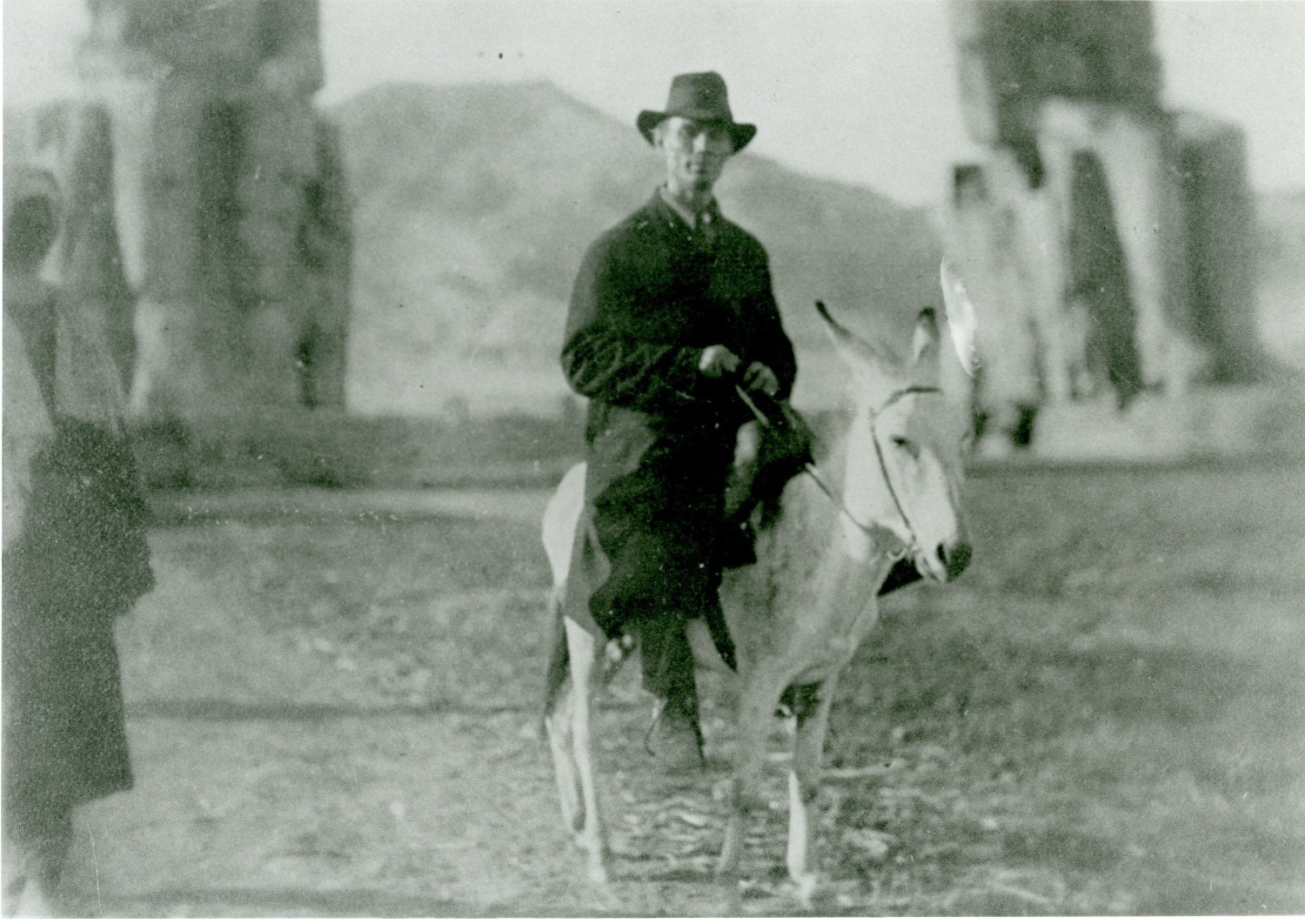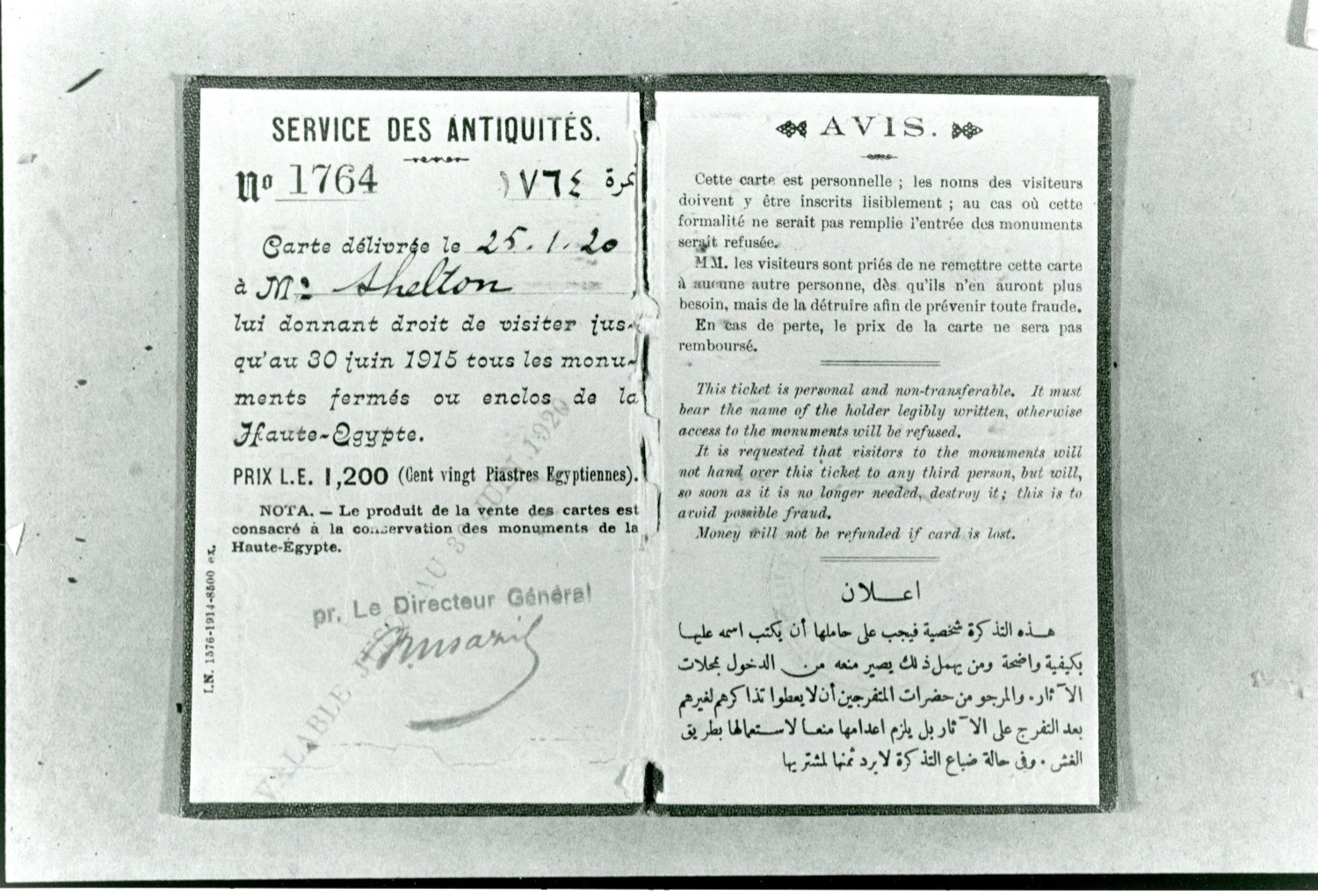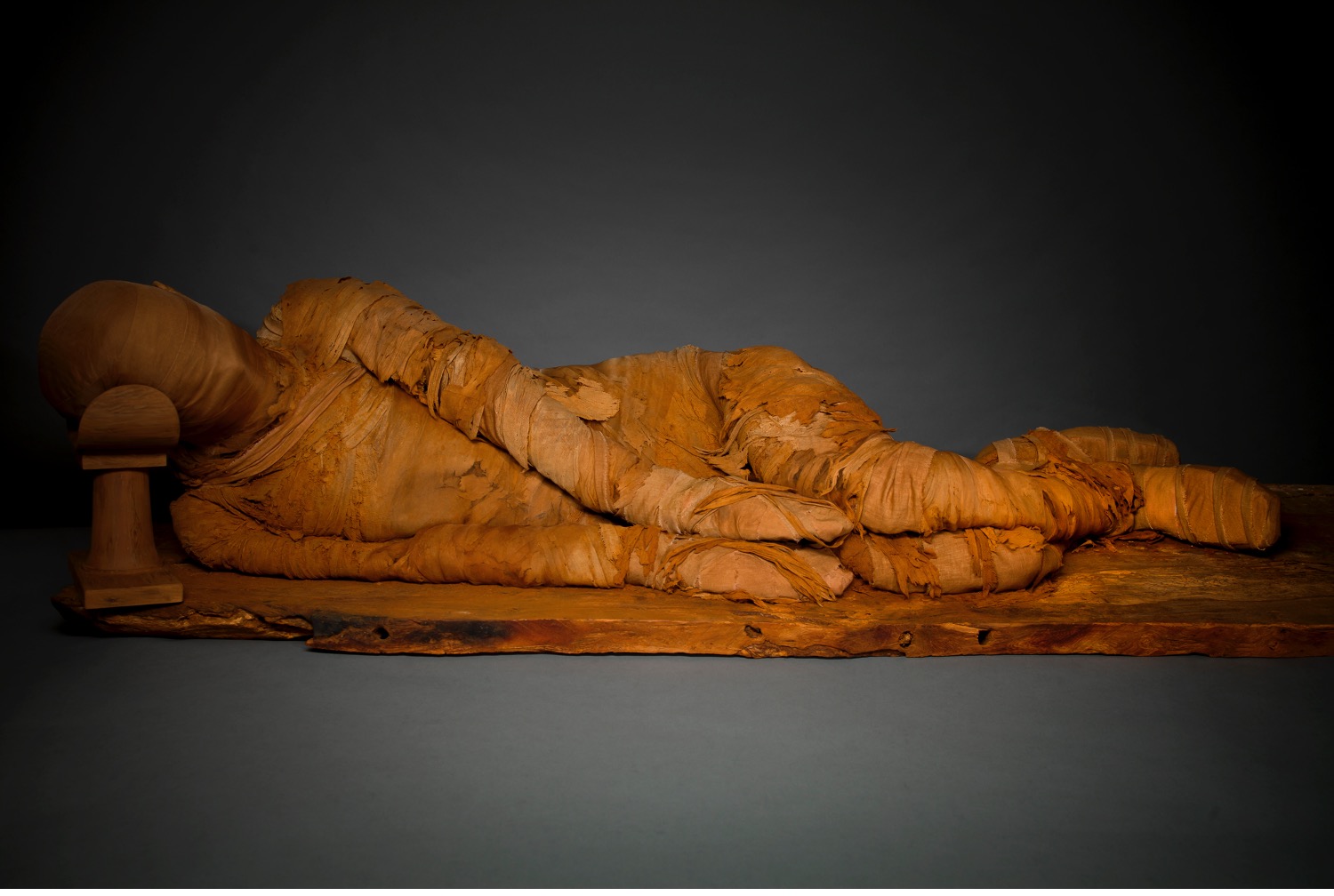

issued by the Egyptian government

Egyptian. Old Kingdom, Dynasty 6. Linen, human remains, wood, modern head rest. Collected by William A. Shelton, funded by John A. Manget. 1921.001
In 1920, Emory Professor William Shelton found himself in Cairo arranging the shipment of an Old Kingdom mummy to Atlanta. Shelton had spent the last few months traveling to Egypt with a group led by Egyptologist James Henry Breasted. With funds supplied by Atlanta cotton merchant James Manget, Shelton’s goal was to acquire artifacts for the Emory University Museum that would support the teaching of Emory faculty. Egyptian Law of Antiquities No. 14, passed in 1912, permitted the licensed sale of antiquities as well as their export with the proper permits. It was under this law that Shelton purchased over 250 artifacts and sent them back to the Emory University Museum. The Old Kingdom mummy was part of this group. He has the accession number 1921.001 - the first accession number - making him the Carlos Museum’s longest-term resident.
Having been with us for over 100 years, the Old Kingdom mummy has seen many changes at the museum. He has seen a century of changing ethics and changing approaches to acquisitions and collections care. In 1920, the Emory University Museum and its staff were operating within a different collecting environment with different professional standards as compared to the Carlos Museum in 2023. All collecting institutions have material in their collections that would not be acquired according to today’s ethical and legal standards. We can’t change this, and we can’t change the objects we have in our care. What we can do is try to better understand the histories of our objects (and mummies) and share those stories with the public.
Through this blog, we will regularly share the process of provenance research, the ethics of caring for museum collections, and the fascinating stories we uncover in the process. Check back next month!




